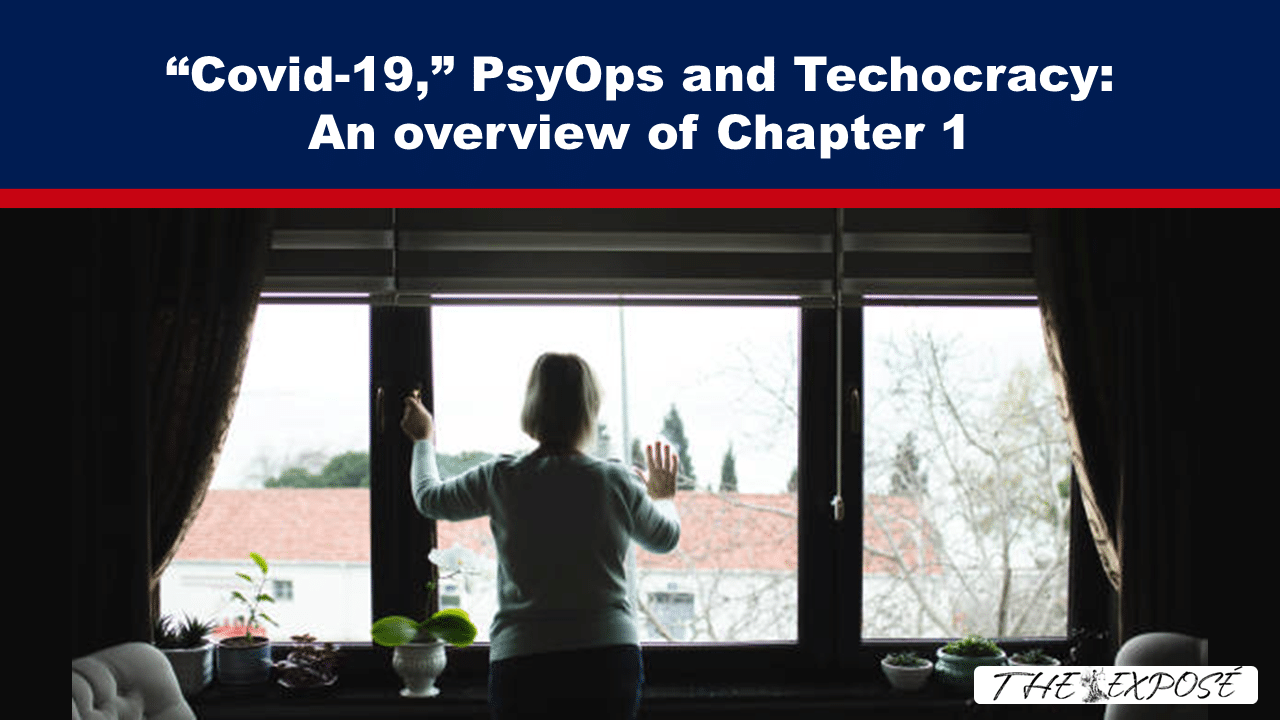Privacy Part 4: Social Media Do’s and Don’ts
Social media is not private by its very nature. Learn how to use it safely.
LINKS:
Originally posted 2022-08-02 16:08:23.
Will Dove 00:12 So once again, I'm joined by Oliver Ross of Liberty Lives for Part 4 of our Privacy Series. So far, we have covered search engines and browsers, VPNs, and email privacy. And so Oliver is back today to talk about social media. And I know that many of you do use social media, almost all of us do. But I think we can start all over with the blanket statement that it's social media and so, by default, it's not private. Oliver Ross 00:39 Exactly, we all like to think, Oh, we found that next gem, we found parlor or whatever other big Oh, there's an alternative to Facebook, oh, there's an alternative here. And they're all there, they must be respecting us at some time. And you want to give them the benefit of the doubt when they come out, you might be able to do that if you actually look at their policies, but I in the long run, they're either gonna get shut down, or they're gonna join them. That's just reality, we have to accept it. Will Dove 01:12 Now, in my mind, I divide social media kind of into two groups, you've got the very public, very obviously public stuff like Instagram and Facebook. And then you've got what are supposedly the private communication platforms like Signal and Telegram? Is that a fair way of looking at it? Or is it? Would you categorize it differently? Oliver Ross 01:31 The best answer I would think of for categorization is probably just what types of things you can do on them, more than a private and public type of perspective? Is it for a - you have to think about the way Facebook is constructed versus the way Twitter is constructed versus the way Telegram is? They - all serve different niches and make certain forms of communication easier than others? Now, would I say any of them? Are wholeheartedly, private? No. But there could be a gradient there were some are better, nothing is good. Let's put that answer out there, nothing is going to be the best thing you've ever seen. But some are better than others. So there's that scale. And that scale changes pretty quickly when things happen. Will Dove 02:33 Okay, so let's see if we can do this by your way of looking at it, of what you can do on them. And I think we could probably start with things like Facebook, Instagram, YouTube, where it's very obvious if you post something on there, anybody and everybody can see it. So I think we just maybe just skip over that. Because pretty obvious nothing you do there is private. So what's the next tier down from that? Oliver Ross 02:54 Well, the one important thing that I would say with, which brings it actually back to our last discussion a little bit, is what accounts, what have you given to your Facebook, Twitter, etc? Are those big ones? Have you given your phone number? What email addresses have you provided? What do you do in those email addresses? It's the big thing that you have to keep in mind with the ones that are not private at all, and even the ones that are but it's even more important to keep in the front of your mind here. It's what identity are you building about yourself. If you've connected, you put all your personal information in your Facebook account, you send people direct messages through there strictly, and you're sending about things that nobody else should know about. You are exposing yourself to a large amount of data capture, that builds up exactly who you are, what you believe. And that public face is going to become the same thing as your private face. And that's never a good idea online. Will Dove 04:08 Now, let me let me ask you a question that it's occurred to me. So I know it's good to have heard some of my viewers, and I don't know the answer. But we had talked in our email discussion about things like Gmail being, you know, absolutely not secure. So if you say set up your YouTube or your Facebook account with your Gmail email address, did you just give them permission to read your emails? Oliver Ross 04:32 Now, I'm not sure if that's exactly the way it would work in practice. But what you have done is created a very easy link about who you are. And that to the AI and the big tech overlords is more important than them being able to read your emails, if they can devise and figure out exactly who you are and map out exactly what you're going to think, which, if anybody here is still under the impression that they're not trying to do that, you've got to do a little more research. If, if you're doing that you are making, it's irrelevant what's - if they, if Facebook versus Google could read this part and that part, they're all colluding anyway. So you're giving - all you're doing is you're allowing, think of it like your brain, neurons, everything being connected, right, you're creating the synapses for the AI. And they in AI is programmed with a better storable memory. So you're just creating that net, that network of who you are and that's what they want. So it's not important if Facebook versus Google could read this, it's all going to end up being in the same place in the end. Will Dove 05:54 And that's a very important point that you're raising. Folks, is if you've got a YouTube account, got a Facebook account, got a Gmail account, these companies are all communicating with each other. They're all sharing your data. And something else you said Oliver that people need to understand is they're not just trying to say, sell you stuff based on what you've purchased. They're using algorithms based upon your online behavior interactions to predict what you might purchase, what you might do, what you might engage with. Oliver Ross 06:26 Yeah, and that can go to those extreme places that don't seem out of the view anymore. For a lot of people, we really need to be smart. If we're going to continue to engage with these platforms, we have to be smart with how we're engaging, or we're going to give away too much of a fight. Will Dove 06:49 Right. So I think the general rule we could give for this, this first tier of social media, is don't put anything out there that you don't want to be completely public. Oliver Ross 06:58 Exactly. Will Dove 07:00 Alright, so let's move on because now, you know, and I don't know if there's another intermediary step that you would put in or not, in my mind, we would now skip to things like Signal and Telegram where supposedly we have encrypted communications. But is there something that's sort of intermediate in there? Oliver Ross 07:13 Well, the intermediate platforms to me are the smaller tech ones, like the Parler, the Gettr. It's same type of rules. Though don't, don't be fooled by Truth Social or any of these other ones. They're - if they're going to survive, they're going to collude, most likely. Now, maybe I'll be wrong about one of them, and the whole bunch are to really want to push it. But most likely, there's going to be a point where even the smaller social media platforms are either bought out, broken down, whatever happens. And it's the same types of issues. So you heard, even though you might think that these smaller platforms are open to free speech right now. That's, that's what everybody likes to see on their social media platforms. Firstly, a lot of them aren't, if you actually try and push the limits, they're not. But secondly, and more importantly, is, it's just to entice you on the platform, they want you if they think you could be talking there. And they can get the data from you there. Oh, the - and on top of that, they're also going to know, let's say, you're using the right wing platforms. They're already constructing that you made your Gettr account, let's say with your Gmail, okay, he's that type of person, she's that type of person, they will want to go there, not our platform. So it's important to still have that in mind. There's no real difference in the grand scheme of things. It's just a personal, you might feel 'oh, I am better off on the smaller ones for now'. But just keep that in mind that it's still all building in the same direction of knowing who you are. Will Dove 09:20 So could I say that the takeaway from that is, just because you're posting to things like you know, Tumblr or Gettr, MeWe that purportedly doesn't censor, at least within reason they don't. That doesn't mean they're not collecting and sharing your information. Oliver Ross 09:37 You don't - you need to look at their policies. And on top of that, if they're public. At some point, they could be sold to somebody because by their data, remember all the things that have happened these last couple of years with the tracking and everything. It's the same type of idea except it's more pervasive. Will Dove 09:58 Right, and if everybody knows, using algorithms to watch things at YouTube and Facebook, well don't think they're not using the same ones to watch Tumblr or Twitter, or maybe they're watching everything you post. So just because it's not censored, doesn't mean you don't have to think about what you're putting online. Because once again, this is public. Oliver Ross 10:15 Exactly. We're still dealing in the realm of sharing information about yourself. And that's always I know, we've forgotten that in the internet age. But that's fundamentally something that was never forgotten about before this, there are certain things you want to keep to yourself. Will Dove 10:31 Right. Yes. So and I think, I always think of it this way, if I wouldn't hang a 10 foot poster of it in front of my house, don't post it online. Oliver Ross 10:42 That's a good rule of thumb. Will Dove 10:45 So I think it can't- so at this point in time, can we now move on to the supposedly private communication platforms like Signal, Telegram, your thoughts on those? Oliver Ross 10:53 I'm not a huge fan of them. In general, I don't use- well, I have a Telegram account for my pub - my business stuff, which again, and again, it's the same idea that I'm using. I'm not saying I'm not using these platforms, I'm using them for what I think is useful for them and they're public business. So it's public. Okay, fine, who cares? Let them see it. But you have, when you're dealing with the Signal and Telegram, the first thing you should be thinking about is, both of them require your phone number to sign up. And with that, a probably upwards of 99% of the people who are watching this, use a phone number that they bought through their service provider, and then you're making that link. Again, it's another link in the whole puzzle that you might think it's insignificant, but if you combine that with your email, and with your other social media. It's no longer insignificant it is another component that just helps build the whole identity of who you are. Second, and really concerning to me, they both require contact privilege. So I don't know maybe people don't pay that much attention. But I noticed that when if your Telegram account, let's say is on two different phones. And on one of the phones, you don't add contacts, and the other phone, you do those contacts that you added on the other phone. going right into Telegram, they're just going to tell you that you can communicate with somebody through Telegram and it tells you when they make their account so that you can communicate with them using Telegram, isn't that great. Third, more so with Telegram with this one than with Signal, but it's something to keep in mind. If you're thinking Telegram is your uncensored platform where you can share your information. There are plenty of Telegram groups now show showing the groups that have been censored. Now, majority of them are white nationalists types of deals, whatever you want to call them, all those lists of things that you can see. But that shouldn't be something that you are encouraging from a company that you're talking about as being non censoring. Because if that's not cool on their platform now, give it X amount of time, then what you're saying might not be and you'll be on the chopping block and then, okay, what do you do from there? Will Dove 13:39 I want to jump in with a question here, just to make sure that I'm following this because once again, most of what we're doing here is trying to protect people against algorithms against automated tracking. So what you're painting here is a picture of okay, I set up a Telegram account, but I gave it my phone number. And so now they know my phone number. If I have ever, ever filled in, say a purchase form online, using my phone number and my email address, now they've connected those two things. If that happened to say, be it a Gmail address, well, now they can tie into Google's database and they know all the emails I've sent. And it's all being done by an algorithm. Oliver Ross 14:15 Yeah, there's no person that needs to be involved in any of this. This is all just machines. And let's even say right now that some of these algorithms aren't that complicated. And these AI give it a little bit longer. They're still working at it, it will happen and it will be usable. So don't think that oh, you know everything that's going on. Now, with their AI and that's not changing. Firstly, you don't - we - none of us do. But just think about what the connections you're making to everything are in that regard. Will Dove 14:50 Yes, and my I'm gonna throw my own little oar in the water here because we are kind of straying into the idea of AI. My own personal opinion, not because I know a great deal about computers but because I know a great deal about how the human mind works is that we are a very long way away yet from true artificial intelligence. But programs that can mimic intelligence are getting extremely advanced. Give them parameters of yeah, check all these emails, look for certain keywords, look for certain ways that people phrase things, look for who they're talking to. And that algorithm can do 'as good' a job or better than, say, a human agent could do going through all of your records of pulling out from that information about who you are about who you're likely to be interacting with about what you think about what your political affiliations are. The whole nine yards. Oliver Ross 15:43 Exactly. It doesn't matter if they are stupid, in some senses, the AI, but they're not stupid, in the sense that they can be programmed to do something better than a person. Will Dove 15:55 Yes. Yes. Okay, so we've addressed now things like Telegram, Signal, but I think the question that people would want to know is just Okay, so assuming Yeah, we've already covered the fact that when you go into Signal, Telegram you give them your phone number. But assuming that you're okay with that part of it, how private are those communications? If I send a message to somebody else on Signal? And I'm asking a sensitive question, and I do this actually quite frequently, about our organization and things that we're doing and people we're communicating with. I personally use Signal because I've been told by people who are more knowledgeable than I am that is probably the safest one but I don't know. Oliver Ross 16:34 If being the safest in the scheme of social media platforms to share on right now, may be true. Doesn't mean it's that there's not better things to use. It's still the big issue of the phone number. Telegram, there's just don't think it's private at all. You can only do on phones, I'm pretty sure it has hasn't changed. Peer to Peer one on one, encrypted communication. Everything else is not encrypted. Everything else is public. Will Dove 17:12 So it has that has been jumping in with another question. I'm sorry to interrupt. But I think it's really relevant because almost all of these phone apps Signal, Telegram, they also have an app you can install to your computer. So are you saying that if you go when you install that app to your computer, you just lost a level of security? Oliver Ross 17:29 I would say probably not. It's the same issue of having two browsers open at the same time. If you're using the VPN from your computer, you've already provided all that information anyway, with the phone number. So long as you're not exposing your IP address to the whole bunch. If you're doing if you are, yes, 100%, you're doing another layer in the bunch. But if you're not, and just something that people should keep in mind, in general, is you don't necessarily need a VPN from - on your phone, from a internet service provider perspective, because the data that you're given is used on a shared server. So it's going to be with multiple devices anyway. Will Dove 18:23 But that's kind of addressing a question I'm going to jump into because I personally hate thumb typing. So I use signal, but I use it on my laptop. I almost never use it on my phone. So and no, I don't run a VPN on my phone. So if I'm understanding correctly, you're saying as long as I've got my VPN on, which I always do, and I'm communicating on Signal via my laptop, even though those communications are connected to the Signal app on my phone, I probably don't need to worry that they're being read there? Oliver Ross 18:54 It wouldn't be more of a concern, it would be the same concern, It's like I was saying before, it's the same issue as with your like, you were asking if you have your account opened in your Google Chrome versus in and you have another browser open. Theoretically, again, if a lot of work was put into it, potentially, it's not worth the work most likely. And an AI is definitely not gonna be programmed to do that work. It's too intensive, and it's not going to give enough useful data. Will Dove 19:27 Once again, we're getting into the realm of if you've attracted their attention to the extent that they're willing to bet a human being on it. Maybe they could access that information. Oliver Ross 19:36 Exactly. Will Dove 19:36 The algorithms that we're trying to get people to protect themselves against would not be able to do that. Oliver Ross 19:41 It's too much work. It's not worth it for the 0.1% that they probably less than honestly, that they might capture doing that. Okay, what are you gonna program for you might as well just put a person on those people anyway at that point. Will Dove 19:56 So the takeaway from this that I'm getting is if I'm using Signal on my laptop, and if my VPN is running, chances are very high that an algorithm cannot read the communications I'm sending back and forth. Oliver Ross 20:11 You should be fine. Most likely, unless there's something, the only, only concern I would have is you'd have to look at the signal policies and go through everything. And see what they're what they do with their internet connection. Will Dove 20:31 The previous example, you gave a protonmail is if the government subpoenaed them, they might hand over records, and well, Signal could potentially do the same thing. Oliver Ross 20:40 Theoretically, there could be something in built into the Signal program that could read your data other way around. If it's you have to look at the policies - do not - I'm not saying it does. I'm pretty sure it wouldn't. But I'm saying it's important to keep that in the back of your mind that it could theoretically have - there could be something in the legalese, which would be really annoying to read for probably anybody, but it might be important. If you're really concerned, theoretically, there could be something there. Will Dove 21:17 Okay. And of course, each person watching has to decide just how far they want to go to protect them. But I think the takeaway, and once again, please correct me if I'm getting this wrong, I think the takeaway from this discussion is social media platforms, even things like Tumblr, Gettr, MeWe, it's public. So don't put anything on there that you don't want to be public knowledge. Platforms like Signal, Telegram, you've already said, don't use it, I've heard the same thing. Don't use it, don't trust it, I use Signal. As long as you're using signal and you have a VPN turned on or you're using it on your phone where you don't really need a VPN, chances are very high that those communications are private. Oliver Ross 21:57 So long as the one issue that is going to be completely, always a potential issue. Firstly, you have to look at how long these messages are saved, if the messages are indefinitely saved, doesn't matter, because at some point, they're going to be bought out, which is the bigger issue. At some point, these people will likely have to sell or do something to change their policy. Will Dove 22:21 Right. But I do know that on Signal, you can set in your preferences a time limit on which it will automatically delete your message. Oliver Ross 22:29 Now if you'd have to see if it actually deletes from their servers for that. Will Dove 22:31 Right so you have to read the fine print to see if it's deleting it from the servers. And I don't know the answer to that. And I'm thinking maybe, Probably you don't either. Oliver Ross 22:38 No, I don't use Signal. So I would I have I have done that deep of an investigation in that platform. Will Dove 22:44 Now, I have to go one more step with this discussion. Because when we were talking about VPNs, you mentioned Mullvad, which I'd never heard of, and which is truly private, they don't even ask for your phone number. And you can pay them with cryptocurrencies, there's no record of the transactions. Is there something like that in private communications? Oliver Ross 23:00 Well, we'll talk about that and the next one. Okay. That's the next lists of what we're gonna go through. Will Dove 23:06 So, Oliver, thank you once again for sharing this very valuable information with our viewers and we will be back next week with the next section where we will get into what we were just talking about. Oliver Ross 23:18 Thank you













